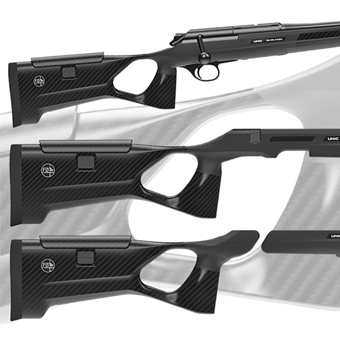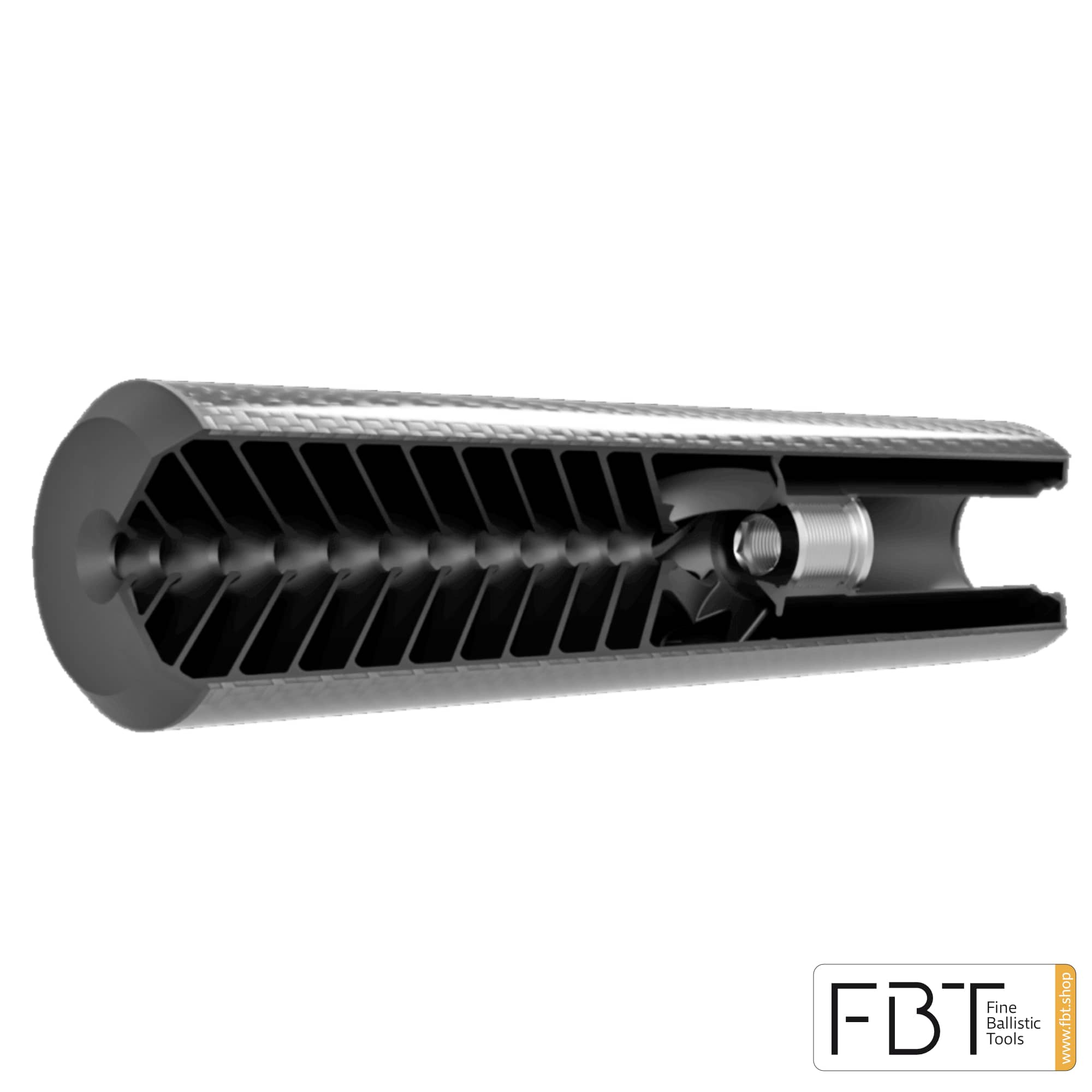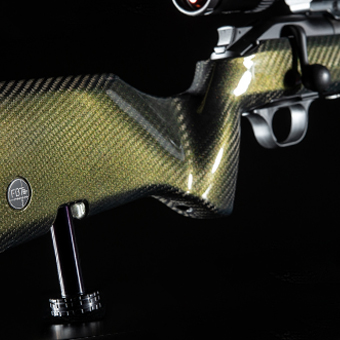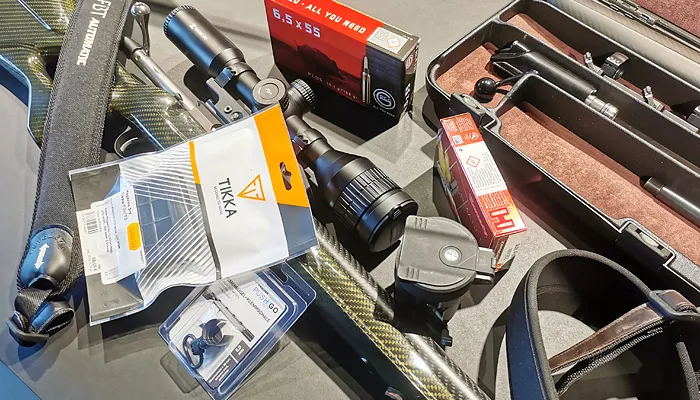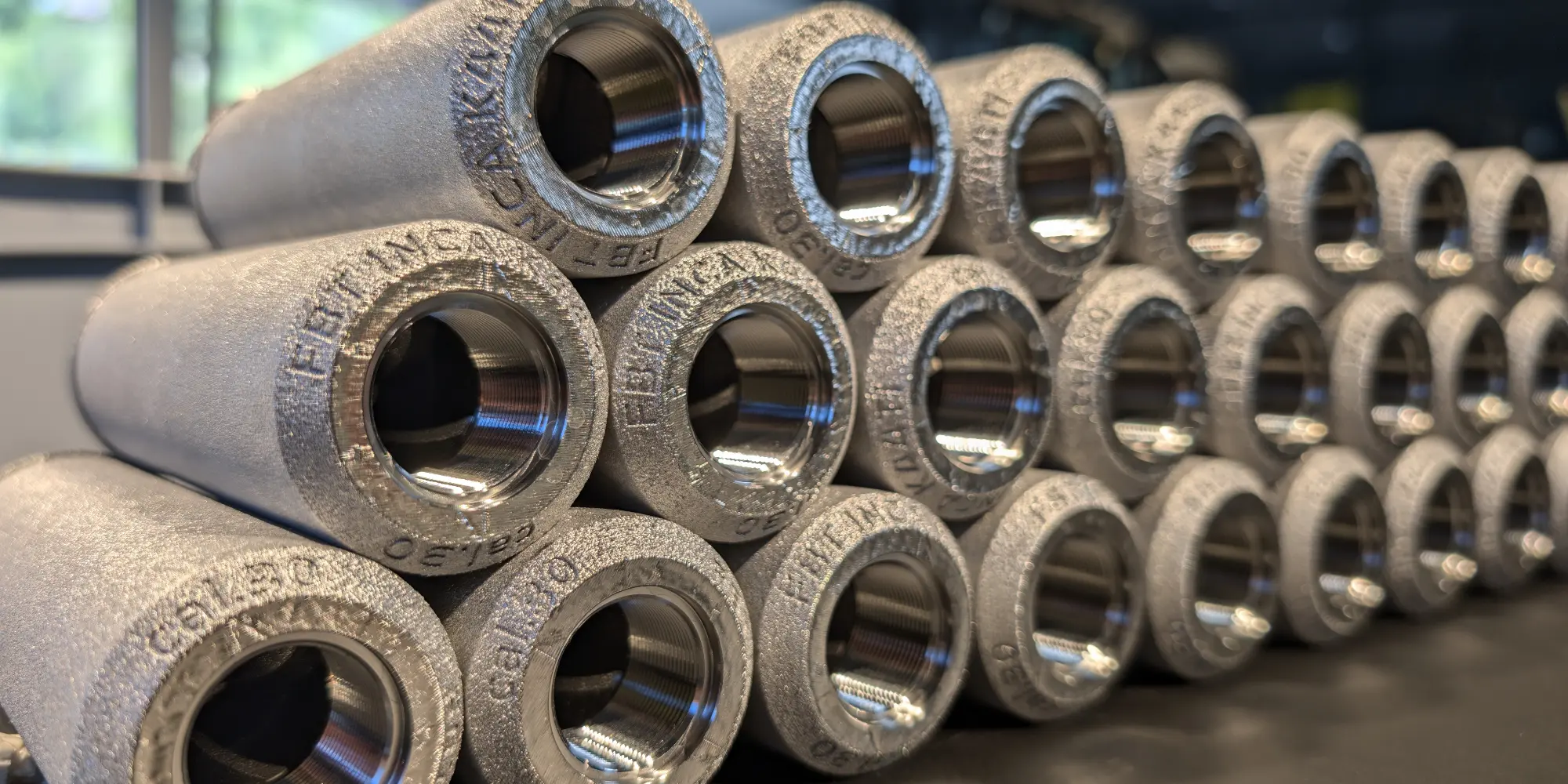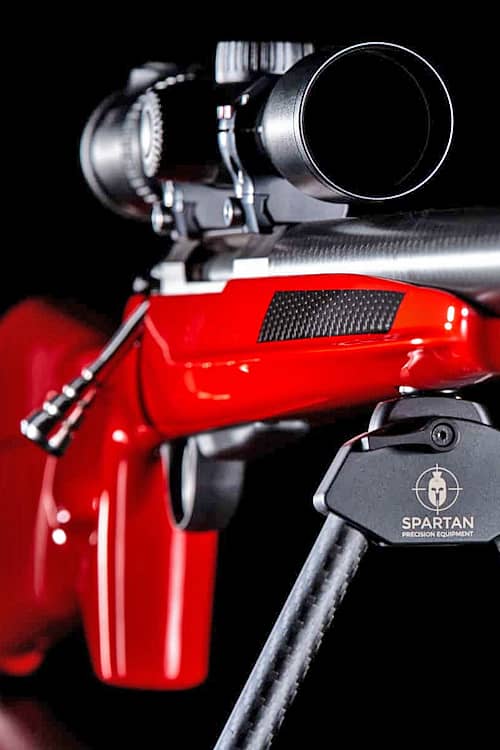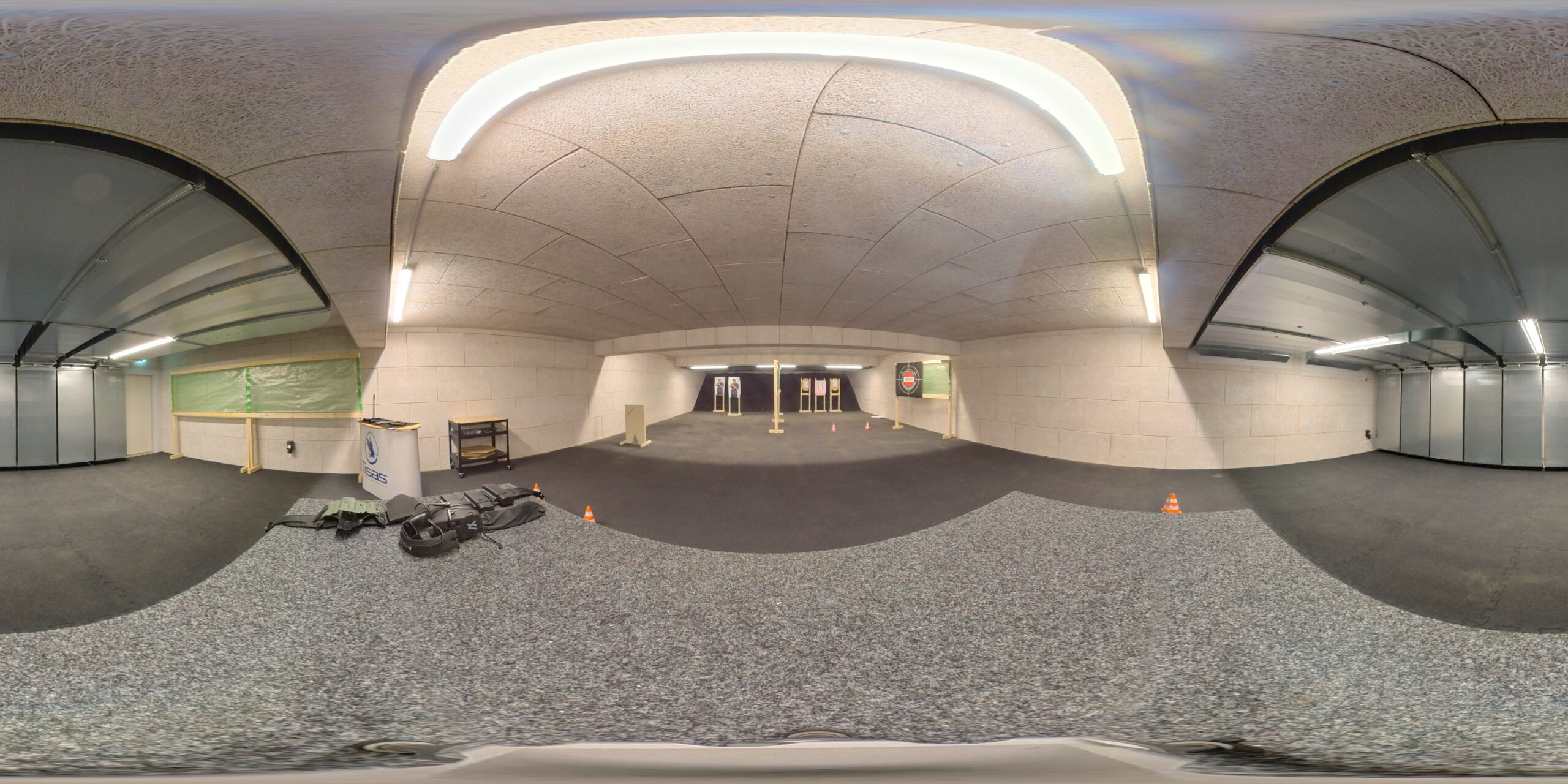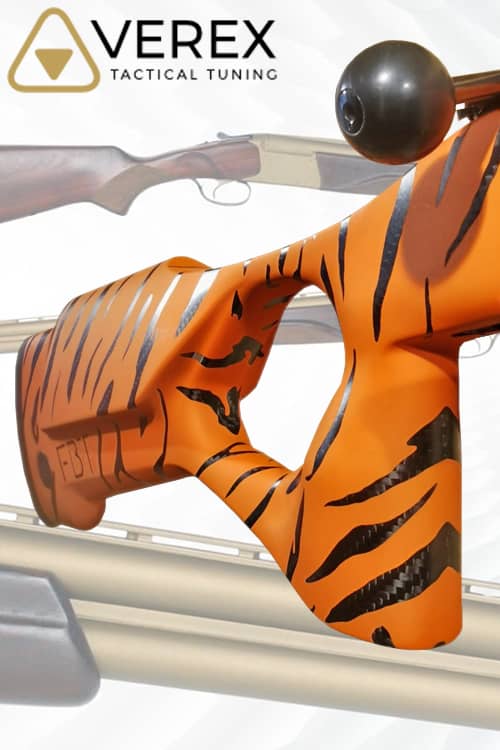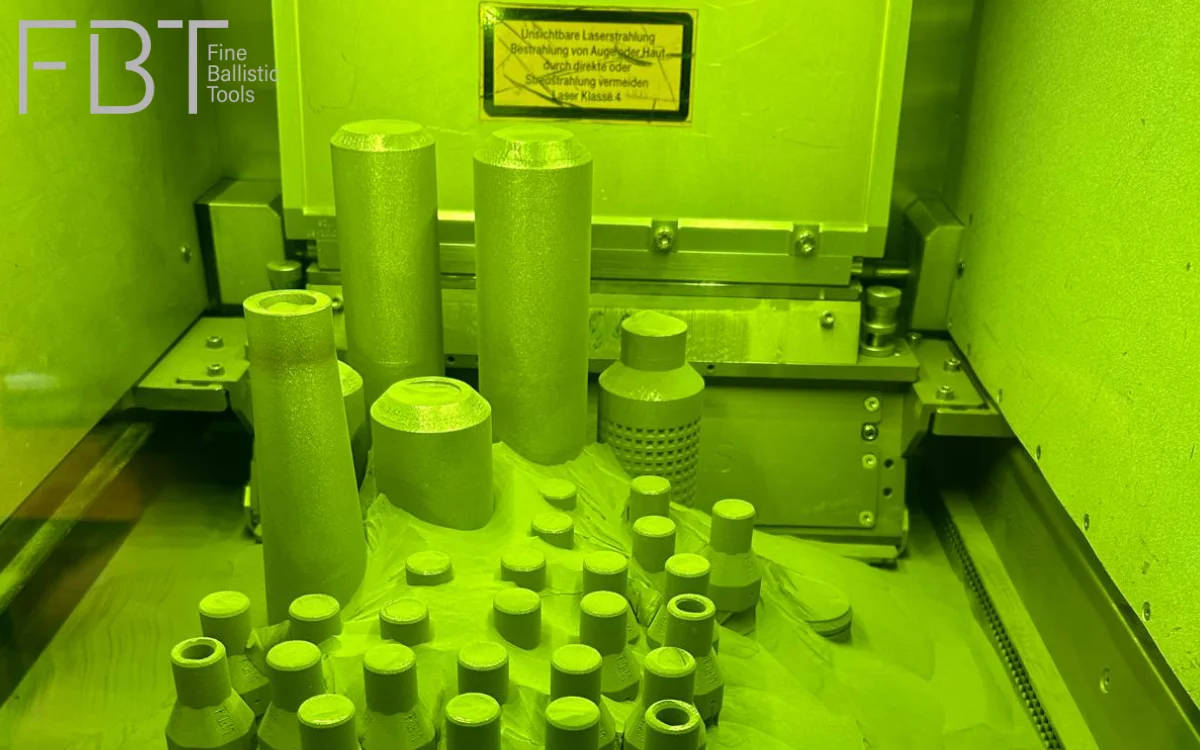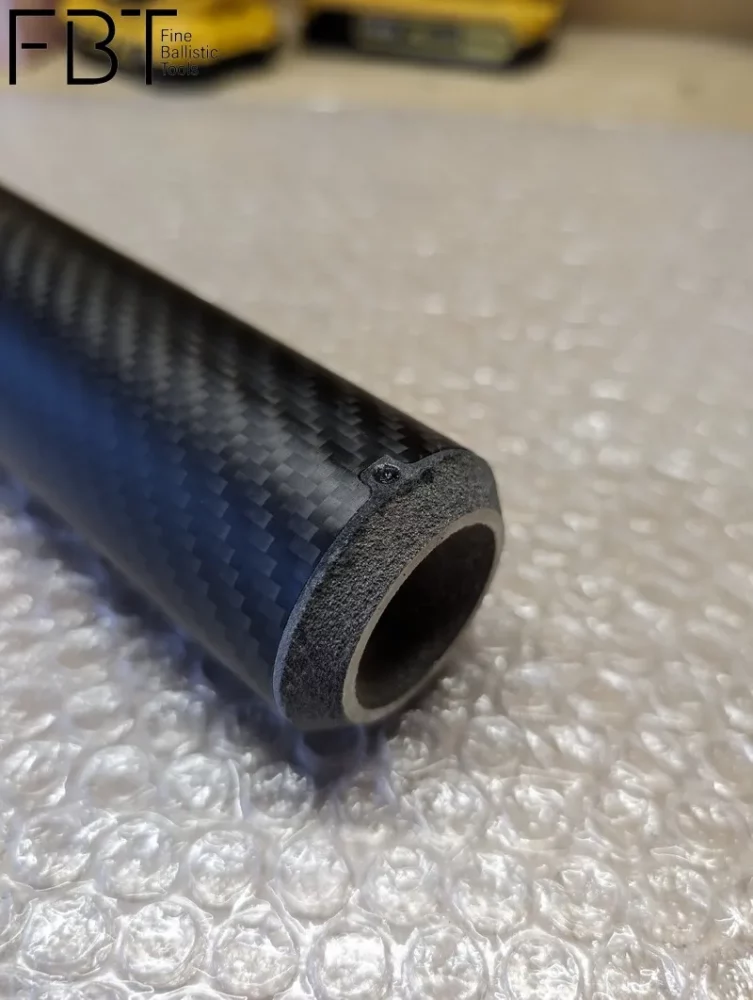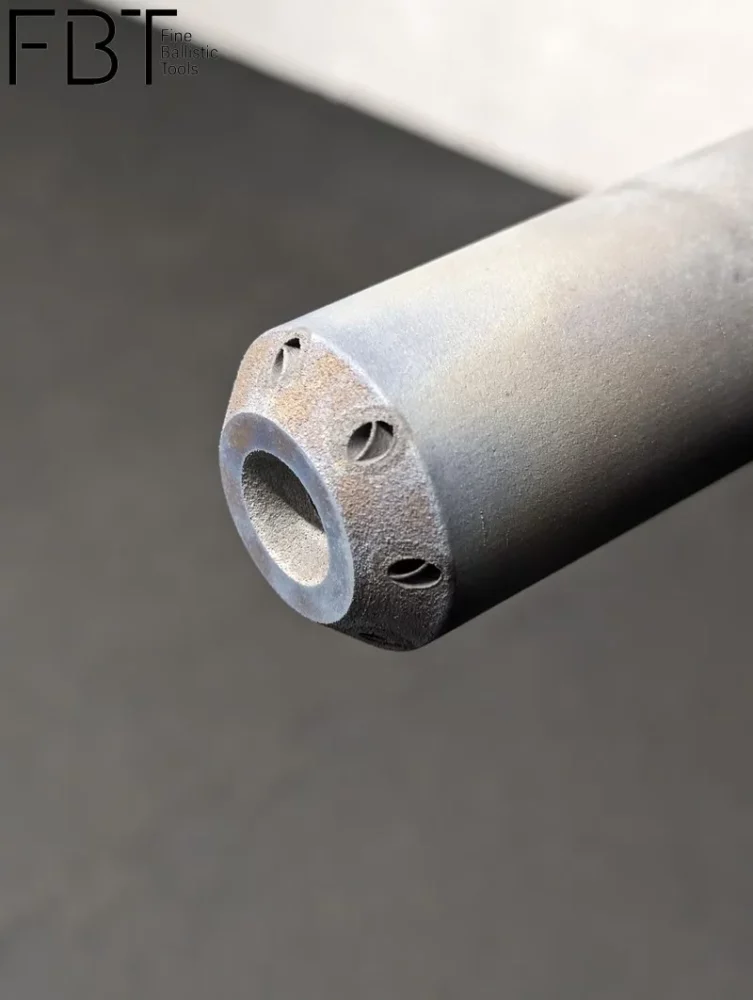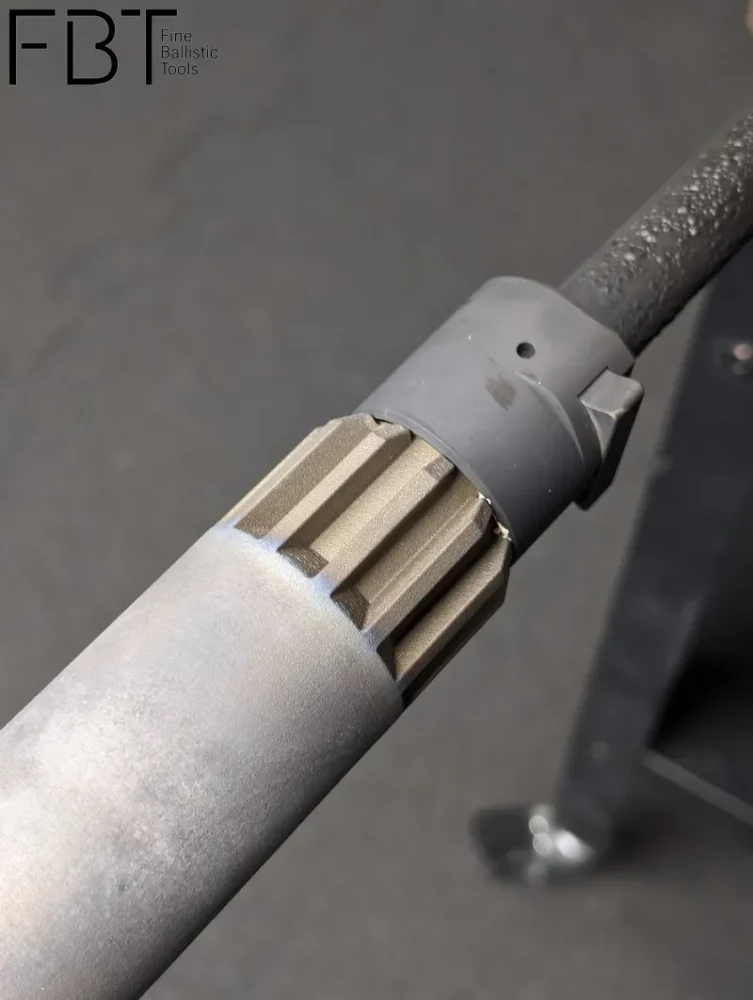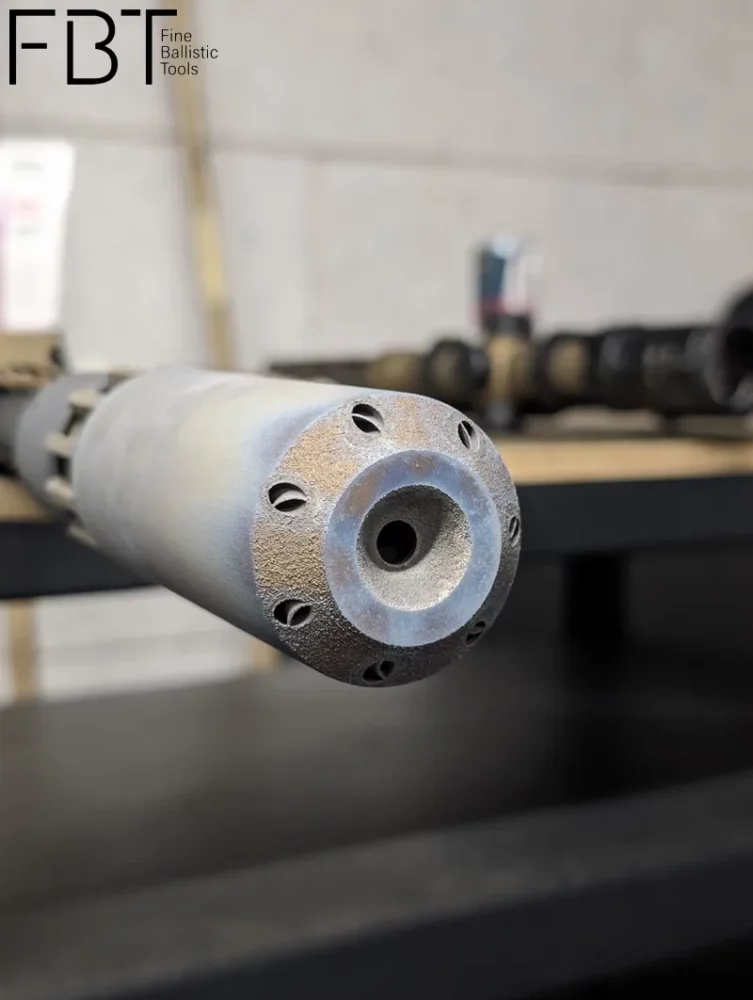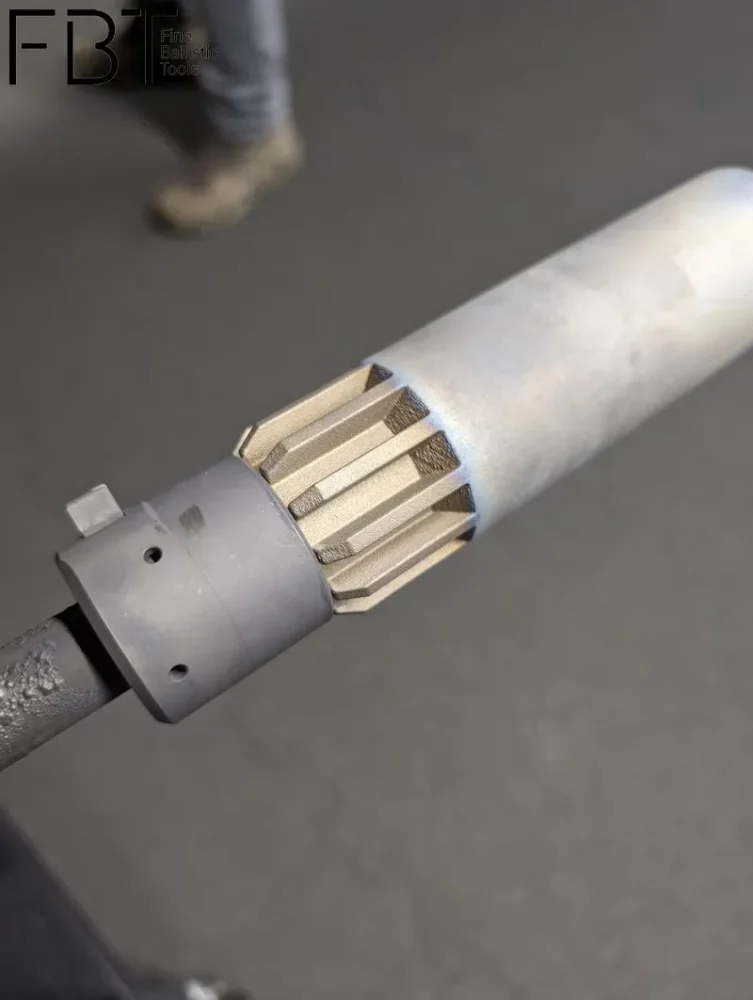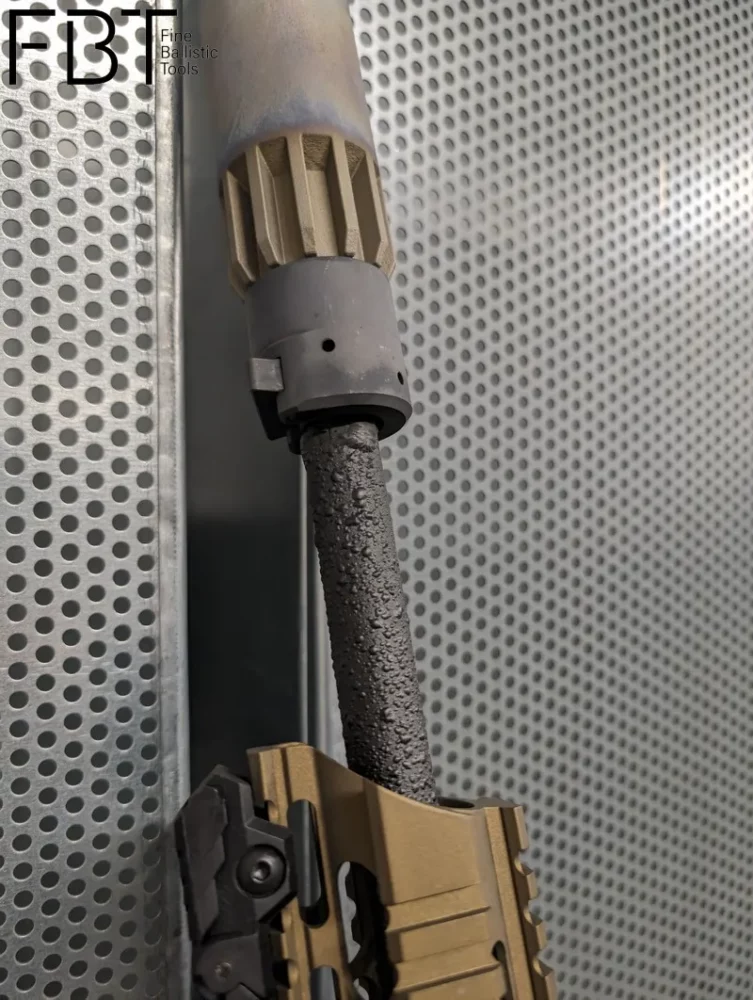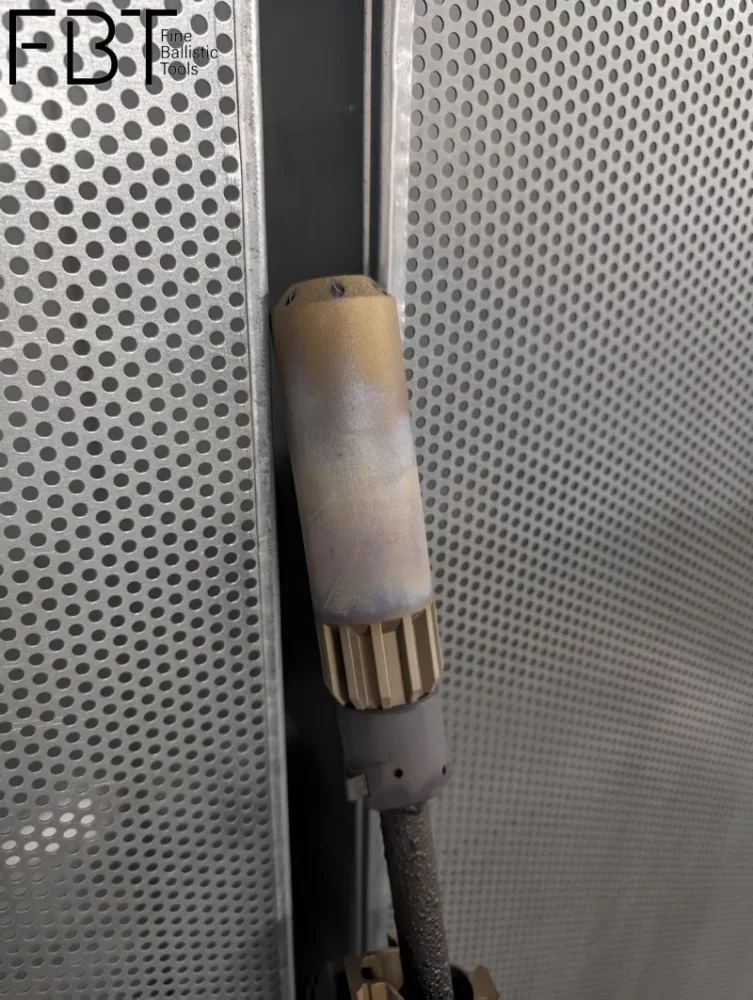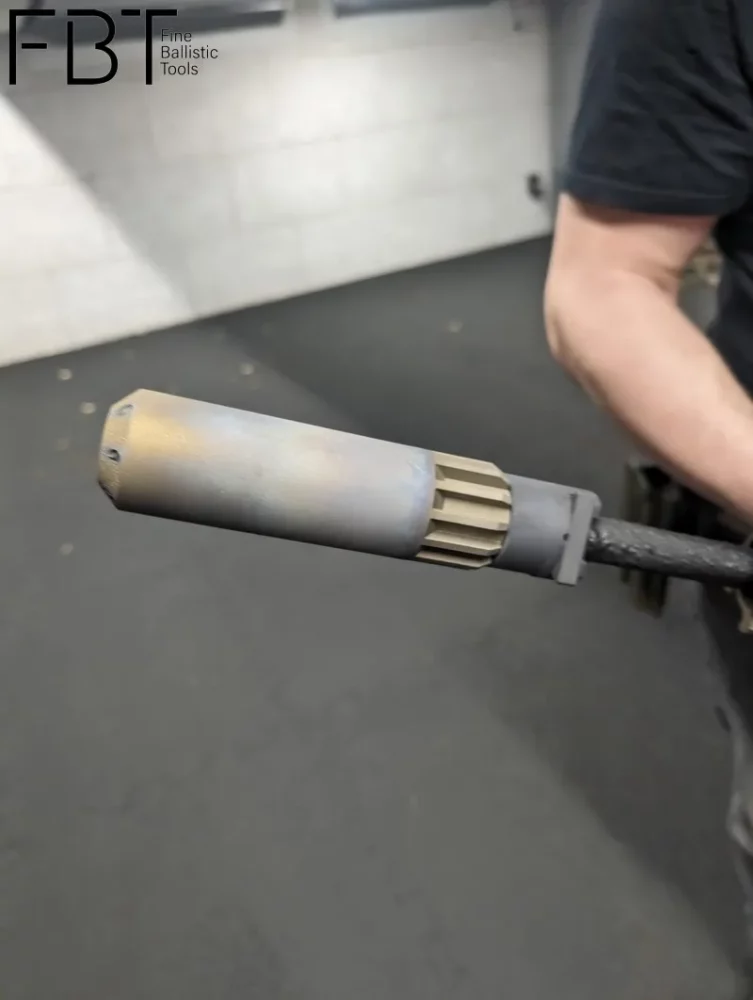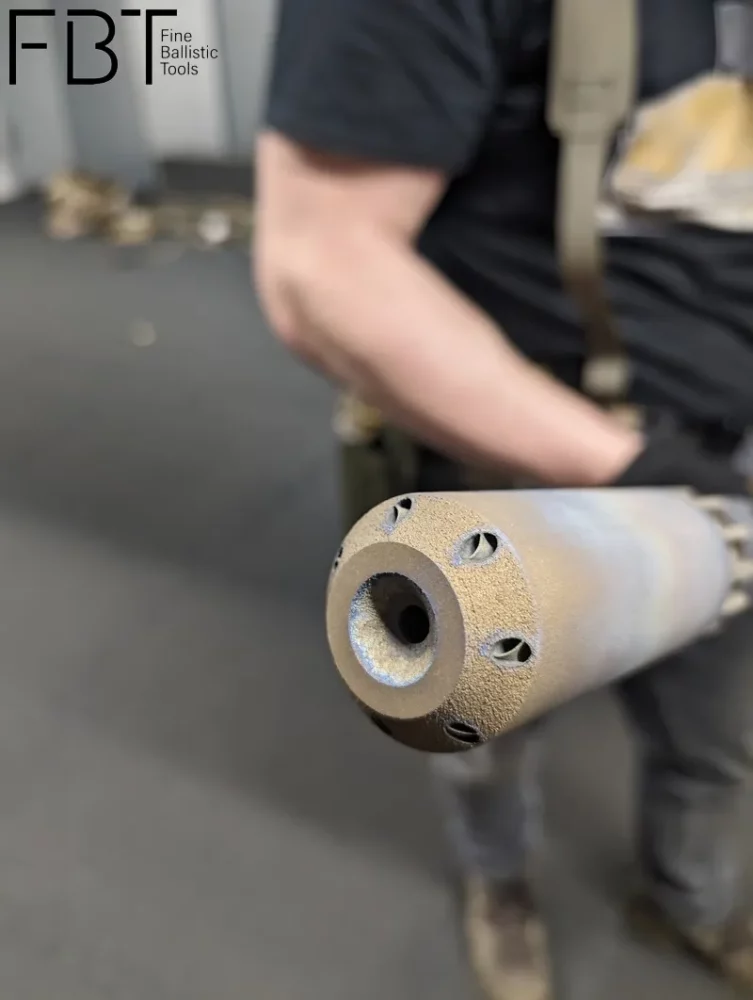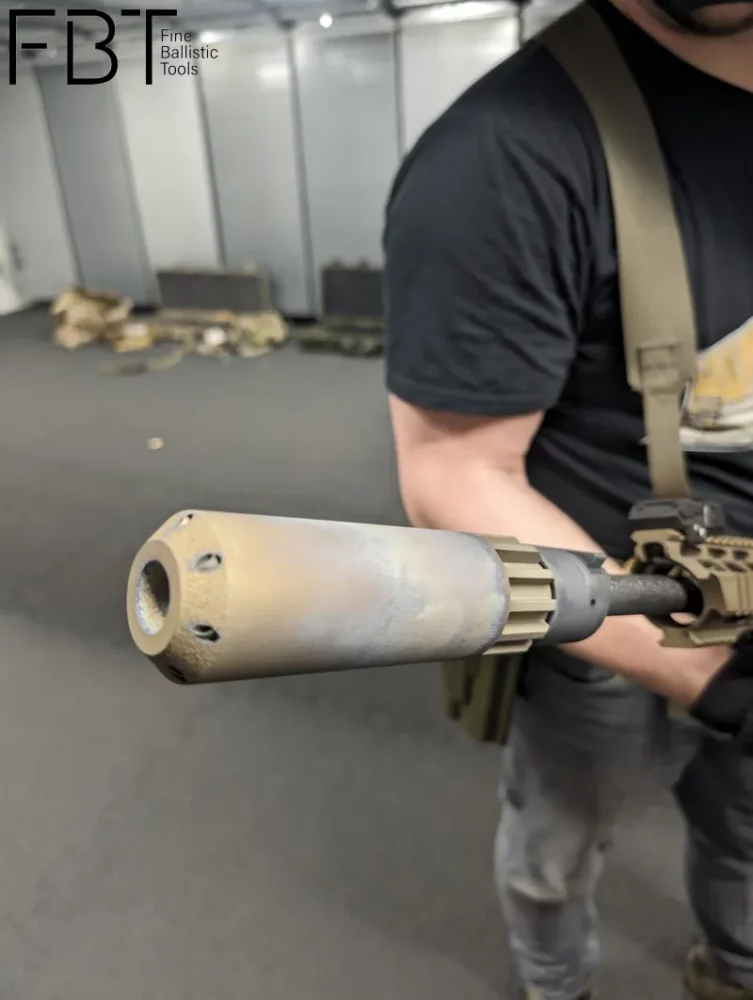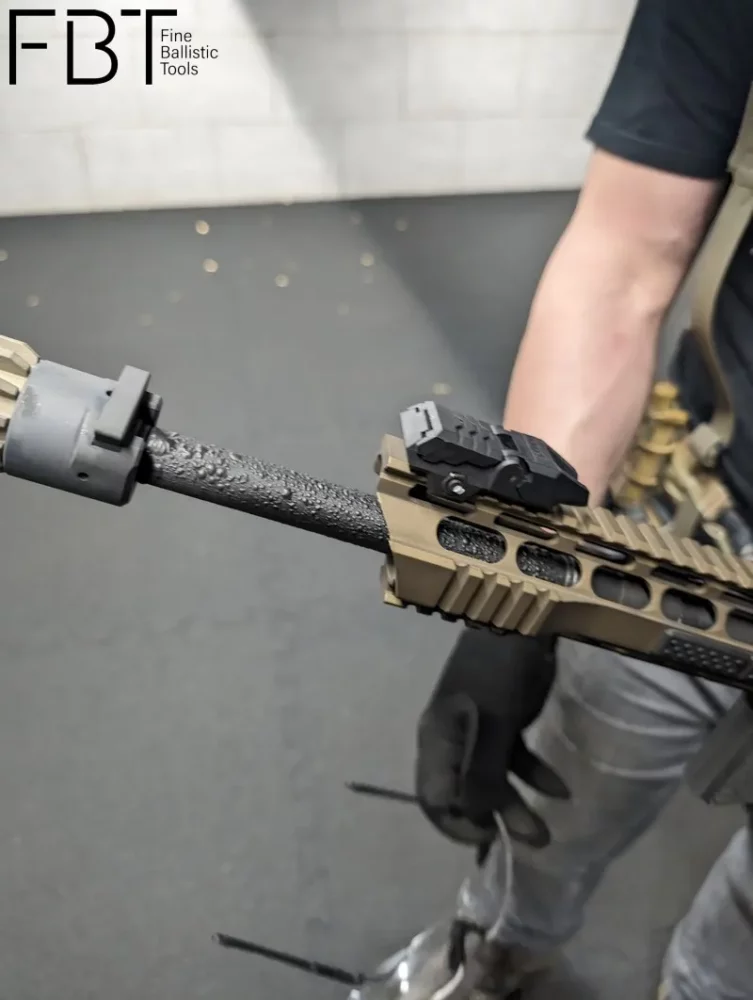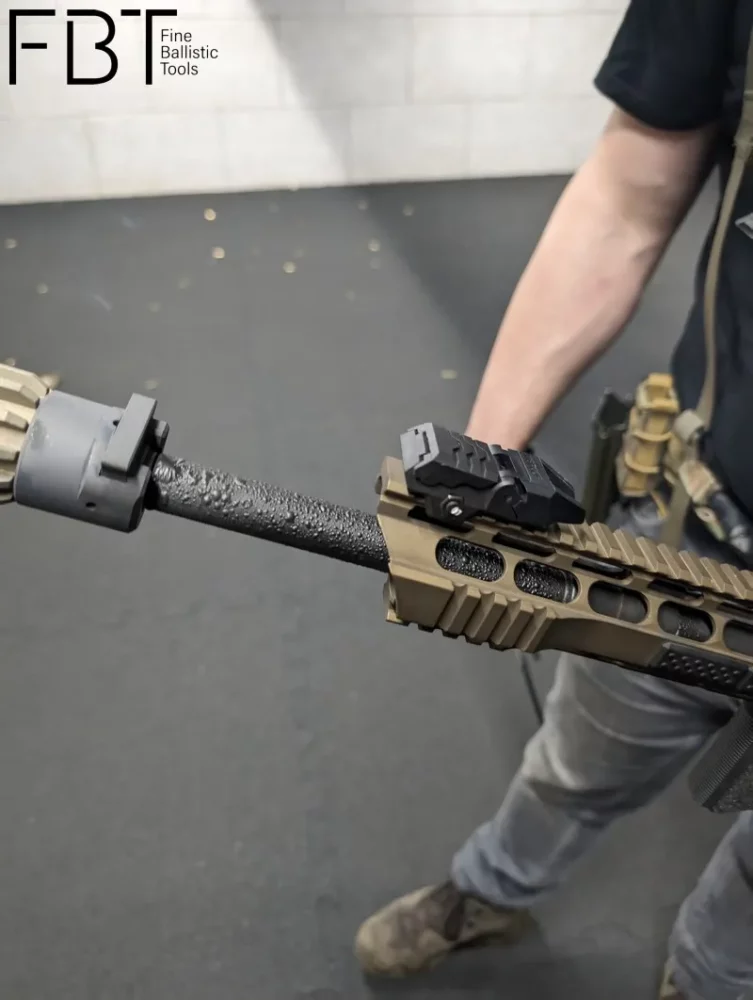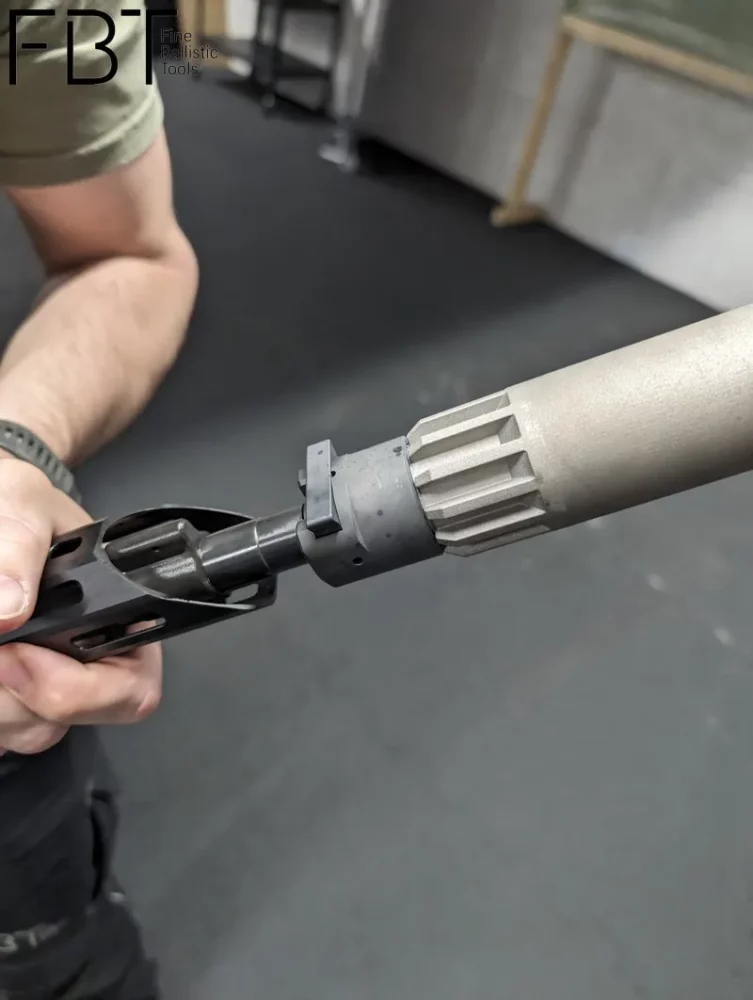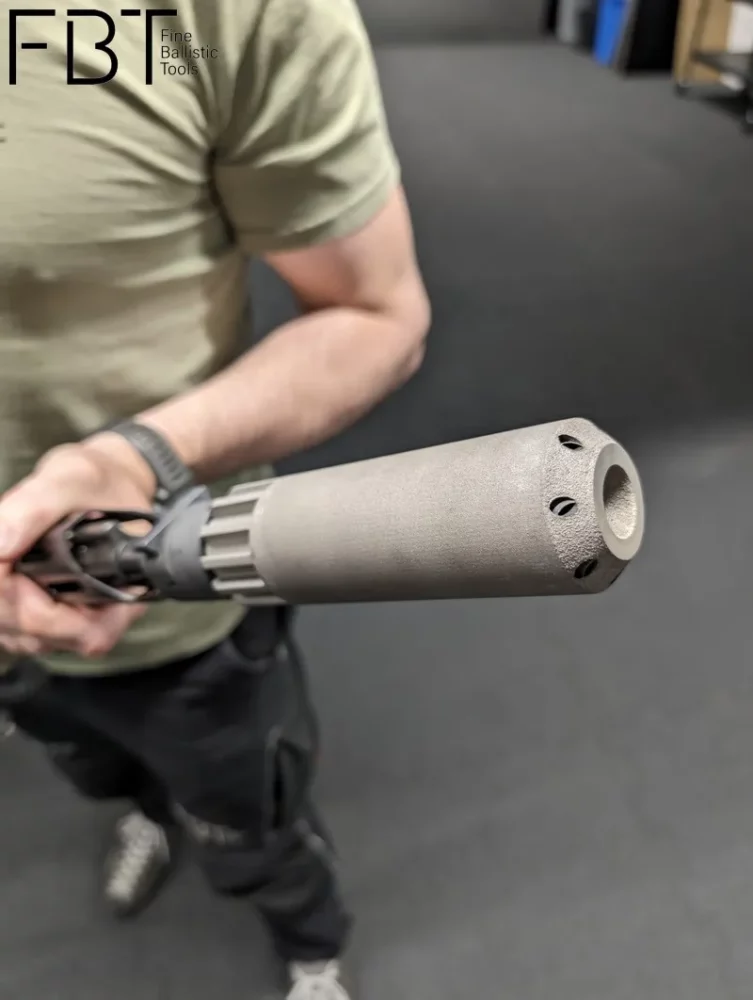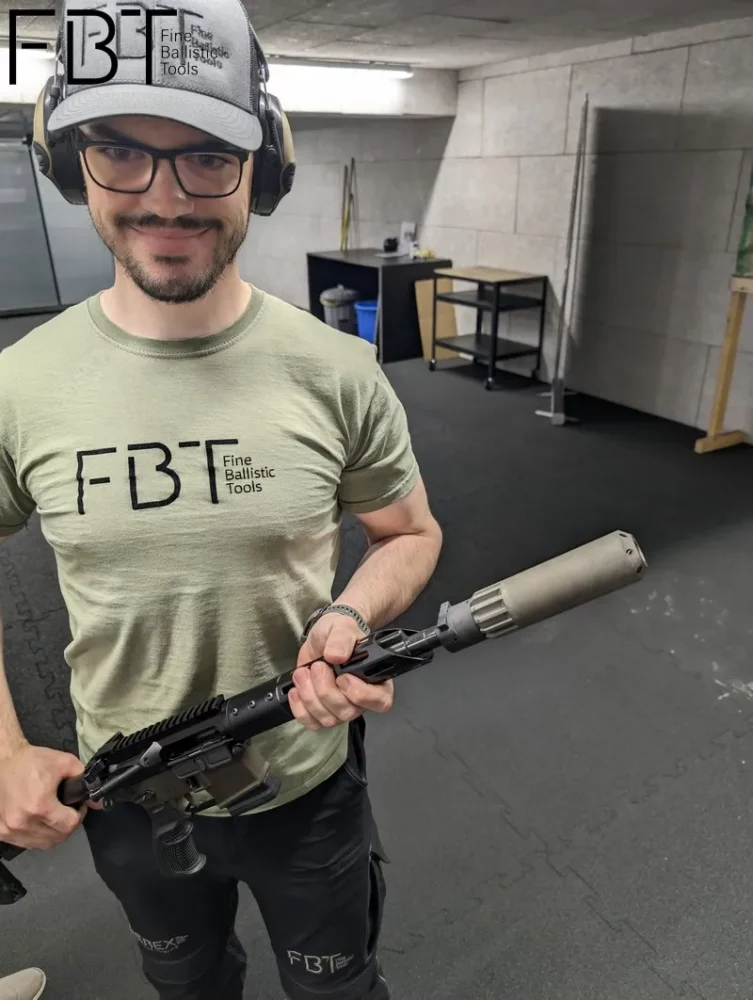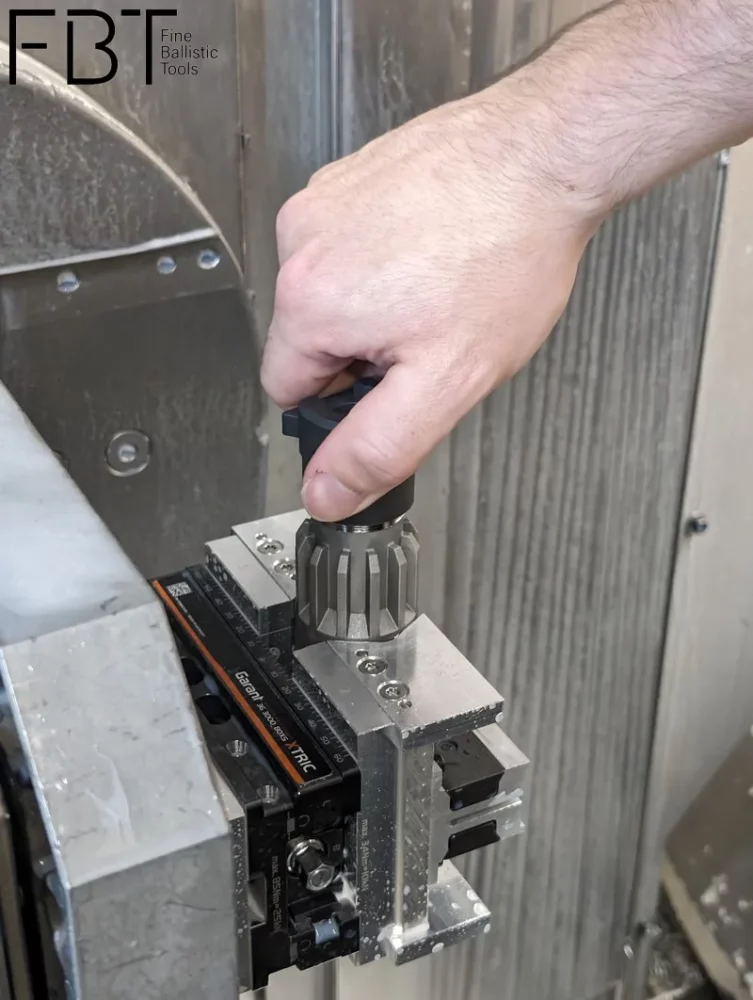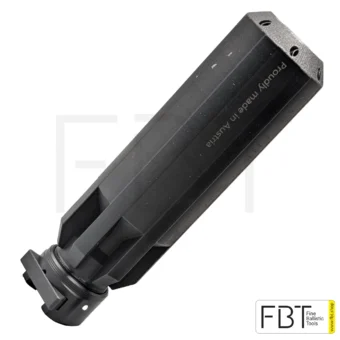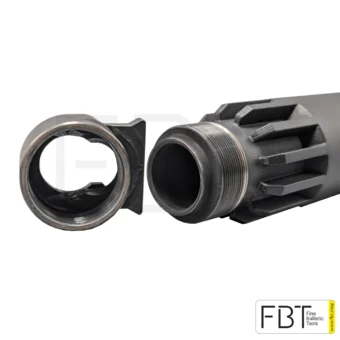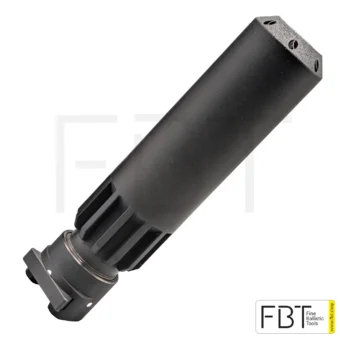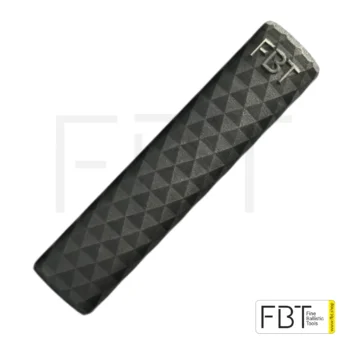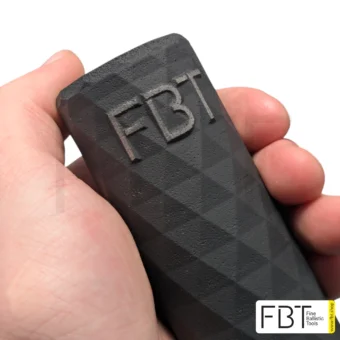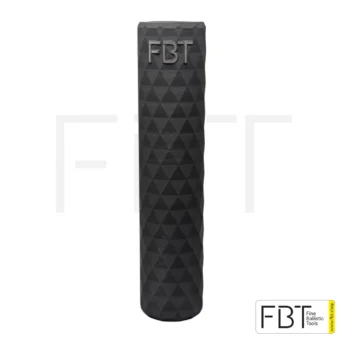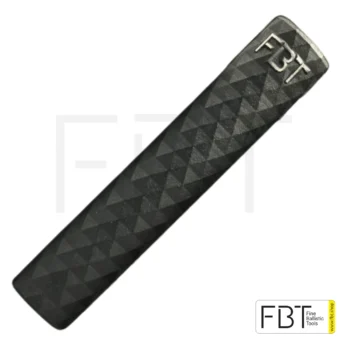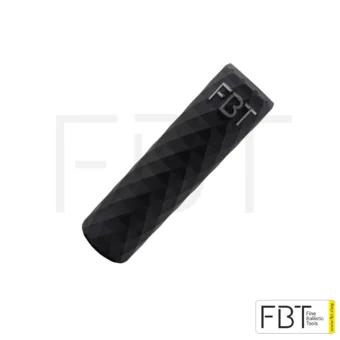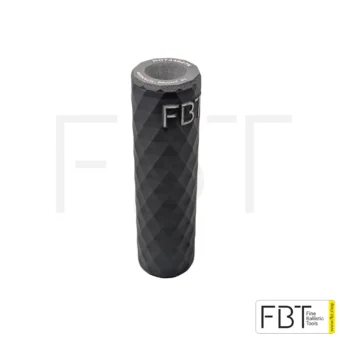Blog
3D printing sintering technology - for silencer development and production - now at 100% in-house at Fine Ballistic Tools
3D printing sintering technology | Our to 100% silencer production at our premises in Gröbming
We at Fine Ballistic Tools (FBT) have taken a significant step into the future by our production capacities by implementing our own additive manufacturing technologies.
With the acquisition of industrial SLS (selective laser sintering) and SLM (selective laser melting) printers, we have the opportunity to optimise our production processes and strengthen our market position.
In this report we would like to The many advantages of this technological upgrade and explain how they have a positive impact on our company.
In-house additive 3D manufacturing | Industrial SLS and SLM printers
Our new additive manufacturing systems include industrial SLS and SLM printers.
These technologies enable us to manufacture both plastic and metal parts with high precision and quality.
628°C silencer temperature at full load with the Steyr AUG - no problem
- SLS (selective laser sintering): This technology uses lasers to fusing thermoplastic polymers layer by layer. SLS is particularly suitable for the production of complex geometries and functional prototypes.
- SLM (selective laser melting): SLM works in a similar way to SLS, but uses metal powder instead of plastic. Thanks to the precise laser technology, parts made of aluminium, stainless steel and titanium can be produced with high strength and attention to detail.
Additive 3D manufacturing in-house | Material diversity
Our additive manufacturing covers a wide range of materials, which enables us to manufacture a variety of products and components.
- Plastics: Thermoplastic polymers are versatile and offer a wide range of applications. good balance between flexibility and strength.
- Metals: The use of aluminium, stainless steel and titanium enables us to Production of components with high strength and durability requirements have to fulfil.
Advantages of in-house production
- Complete control and quality monitoring
A decisive advantage of the In-house production is complete control throughout the entire production process. This enables us to monitor quality seamlessly, which is particularly important in the production of safety-relevant products such as silencers is of great importance.
Each Production phase can be monitored in real time and optimised, ensuring the highest quality standards. - Faster delivery times
Through internal production Eliminate lengthy communication and transport routes to external suppliers. This leads to significantly shorter production and delivery times. We can bring products to market faster and fulfil customer requirements more quickly. - Accelerated technology development
The availability of SLS and SLM printers on site makes it possible for us, develop new technologies and product improvements more quickly and realise them. Prototypes can be produced in-house and tested immediately, drastically shortening development cycles. This promotes a culture of constant innovation and customisation. - Resource-saving regional production
Regional production without long transport routes makes a significant contribution to conserving resources. Eliminating transport not only cuts costs, but also reduces our ecological footprint. This is an important step towards sustainable production and environmental awareness. - Sustainable energy supply
We rely on a sustainable energy supply. During the day, production is powered by our own photovoltaic system, while hydroelectric power is used at night. This reduces CO₂ emissions and supports the switch to renewable energies. - Wide range of applications
Additive manufacturing options open up new business areas and applications for us, particularly in the medical and aerospace industries. These industries require high-precision and reliable components that can be produced efficiently using the new manufacturing technologies.
Case studies and practical examples with 3D printing
Silencer production with examples
One of the main applications of our new 3D printing technology is the Manufacture of silencers. These products require the highest precision and quality in order to fulfil the strict safety standards.
Thanks to in-house production, we can ensure that each component to the desired specifications corresponds. In addition, design changes and improvements can be implemented quickly in order to respond to customer feedback and technological developments.
Components for the medical industry
In the medical industry, the requirements for precision and reliability are particularly high. We use additive manufacturing to produce components for medical devices and implants.
The Possibility of customised adaptations and complex geometries offers a considerable advantage over conventional manufacturing methods. This contributes to the improvement of patient care and the development of new treatment methods.
Components for the aviation industry
The aviation industry is extremely high demands on the strength and reliability of components. With our SLM printers, we can produce lightweight yet high-strength components made of aluminium and titanium that can withstand the demanding conditions in aviation.
This enables us to hold our own in a highly competitive market and offer innovative solutions.
Ecological and economic advantages
Reduced energy consumption and CO₂ emissions
Through the We minimise energy consumption by using photovoltaics and hydropower from non-renewable sources. This leads to a significant reduction in CO₂ emissions and supports global efforts to combat climate change.
Cost efficiency and cost-effectiveness
In-house production is not only environmentally friendly, but also Economic advantages with it. By reducing transport costs and saving on external suppliers, production costs are lowered. This enables us to offer competitive prices and increase profit margins at the same time.
Future prospects
Further development of production technologies
We plan to further expand our additive manufacturing capacities and integrate new materials and technologies. This includes research into new thermoplastic polymers and metal alloys as well as improving the printing technologies themselves.
Expansion of the application areas
We will continue to search for new applications and markets with the new production possibilities. The focus sectors of medicine and aviation still offer a lot of untapped potential that can be realised through continuous innovation and technological advances.
Strengthening the market position
By continuously improving our production processes and expanding our product portfolio, we aim to further strengthen our position as a leading provider in additive manufacturing. This also includes increased collaboration with research institutions and other industry partners in order to recognise and exploit the latest developments and trends at an early stage.
Conclusion
The introduction of the 3D printing technology at Fine Ballistic Tools marks a significant milestone in our company's history. The advantages of in-house production are manifold and affect all areas of our company.
From improved quality control and faster delivery times to environmental benefits and support from renewable energies, additive manufacturing offers us numerous opportunities to position ourselves as an innovative and sustainable market leader.
The future of manufacturing at FBT is characterised by continuous improvement, technological innovation and a strong focus on sustainability and resource efficiency.



